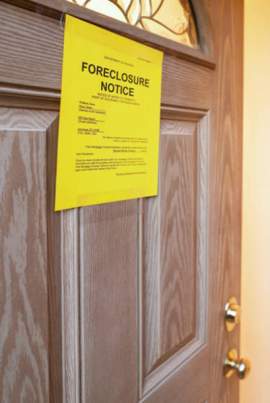
Eviction Process in Virginia

Popular In Foreclosure
Deed In Lieu Of Foreclosure Stop Foreclosure Pre Foreclosure Protecting Tenants At Foreclosure Act Of 2009 Deed In Lieu Of Foreclosure Maryland Avoid Foreclosure Foreclosure Help Eviction Process In Missouri Eviction Process In Alabama Foreclosure Process Short Sale Deed In Lieu Of Foreclosure Ohio
If you are being evicted in the state of Virginia, you may not know how to proceed. Learning about the eviction process in Virginia can help you understand your rights and options under the law. After reading this guide, you will understand the steps involved in the eviction process in Virginia and how long each step will take.
Getting Notice
Before your landlord can begin the eviction process in Virginia courts, you must be served with proper notice as to why your lease is being terminated. The state of Virginia mandates different notice periods depending on why you are being evicted.
The most common reason for evictions is a failure to pay rent. If you have not paid rent, Virginia landlords can give you a “pay or quit” notice. This gives you five days to pay any late rent and associated fees or face the continuation of the eviction process in Virginia. If you do pay your rent within the five-day notice period, your tenancy will legally continue as if nothing had happened.
If you have violated a provision of your lease, you will be given a different notice. The notice period on this type of notice, called a “21/30” notice, is a little more confusing. By way of example, let's say you have a pet in a building that does not allow them, and your landlord serves you with a 21/30 notice on the 1st of March. You will have 21 days to re-home the pet. If you do not re-home the pet by March 22nd, your tenancy will end 30 days after the initial notice, or March 31st.
It is much easier to negotiate with your landlord in this phase of the eviction process in Virginia than in later phases. Waiting until court papers have been filed makes it more expensive and difficult to negotiate.
Court Filings and Hearings
If you do not vacate during the notice period, and you fail to resolve any issues within the time period allotted, your landlord will go to the district courthouse and file an “unlawful detainer” lawsuit. This is the technical name for an eviction suit in the state of Virginia.
You will be served with a copy of your landlord's complaint, which specifies why you are being evicted, and a copy of the summons, which tells you when your eviction hearing will be.
You are not required to attend the eviction hearing, but if you fail to appear, your landlord will win the case automatically. You may be able to win at an eviction hearing if your landlord has behaved improperly by violating your lease, discriminating against you, or serving you with improper notice. Talk to a lawyer experienced in the eviction process in Virginia to better understand your rights and options.
Writ of Possession
If your landlord wins the hearing (or if you fail to appear), a court order will be granted that specifies when you must move by. If you fail to vacate the premises by that date, a writ of possession will be granted to your landlord. This writ, the final court document in the eviction process in Virginia, will be posted on your property to notify you that you have only 72 hours to leave or face forcible removal by the sheriff. If you are removed by the sheriff, you will have only 24 hours to call the sheriff's department and reclaim your belongings before they are considered abandoned property that can be sold or destroyed.



















